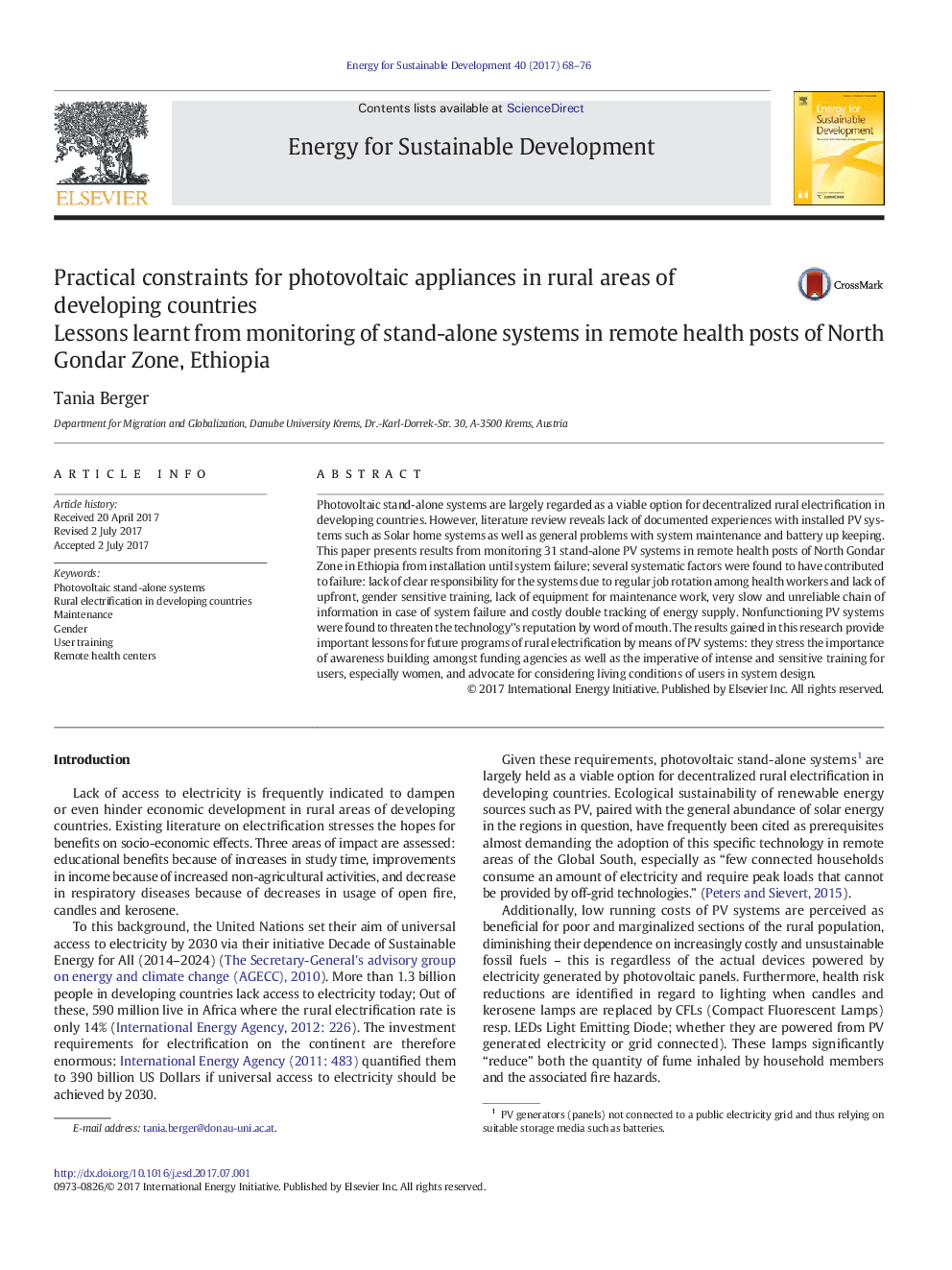ترجمه فارسی عنوان مقاله
محدودیت های عملیاتی برای لوازم فتوولتائیک در مناطق روستایی کشورهای در حال توسعه
عنوان انگلیسی
Practical constraints for photovoltaic appliances in rural areas of developing countries
| کد مقاله | سال انتشار | تعداد صفحات مقاله انگلیسی |
|---|---|---|
| 140826 | 2017 | 9 صفحه PDF |
منبع

Publisher : Elsevier - Science Direct (الزویر - ساینس دایرکت)
Journal : Energy for Sustainable Development, Volume 40, October 2017, Pages 68-76
ترجمه کلمات کلیدی
سیستم های مستقل فتوولتائیک، الکتریکی روستایی در کشورهای در حال توسعه، نگهداری، جنسیت، آموزش کاربر مراکز بهداشتی از راه دور،
کلمات کلیدی انگلیسی
Photovoltaic stand-alone systems; Rural electrification in developing countries; Maintenance; Gender; User training; Remote health centers;

